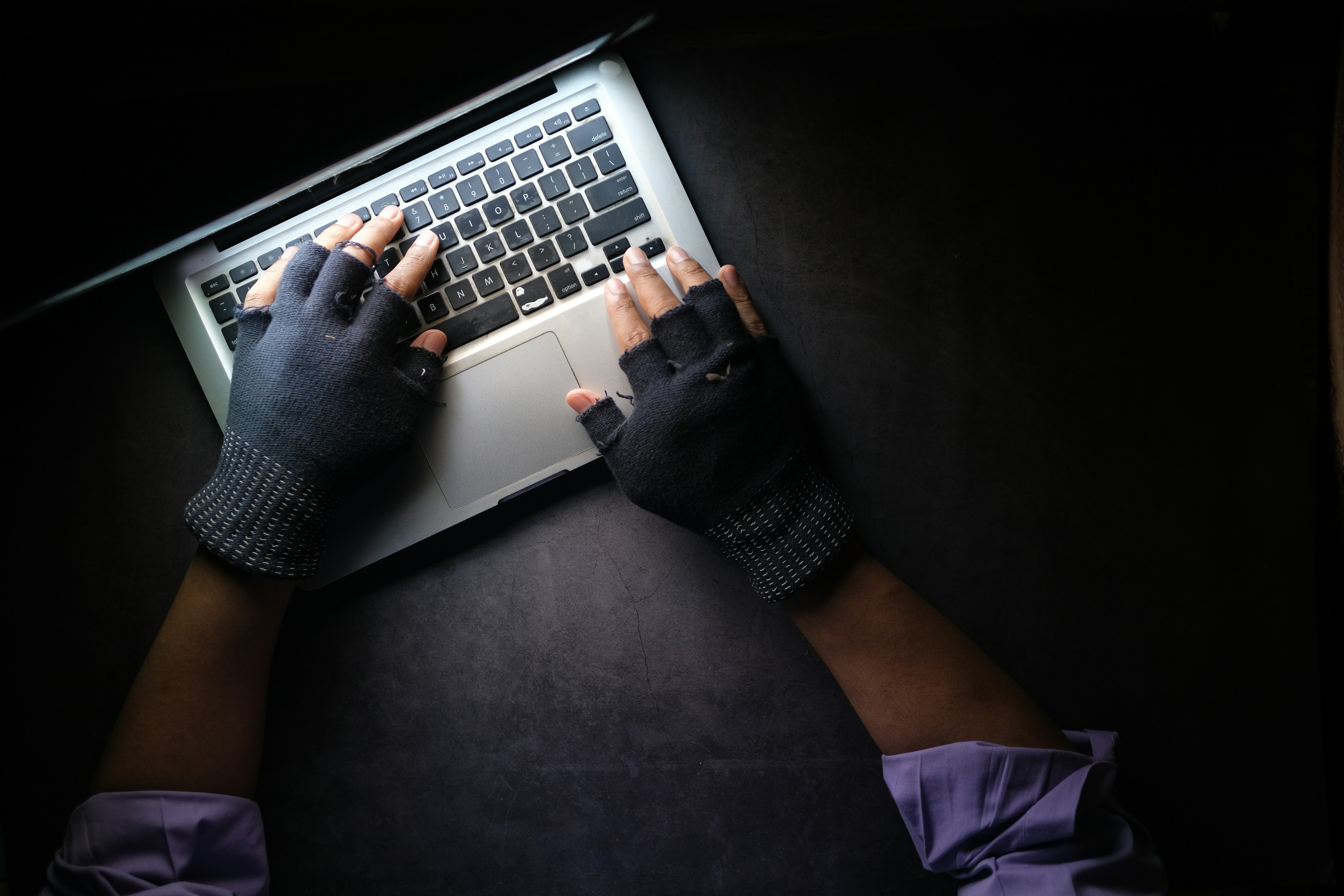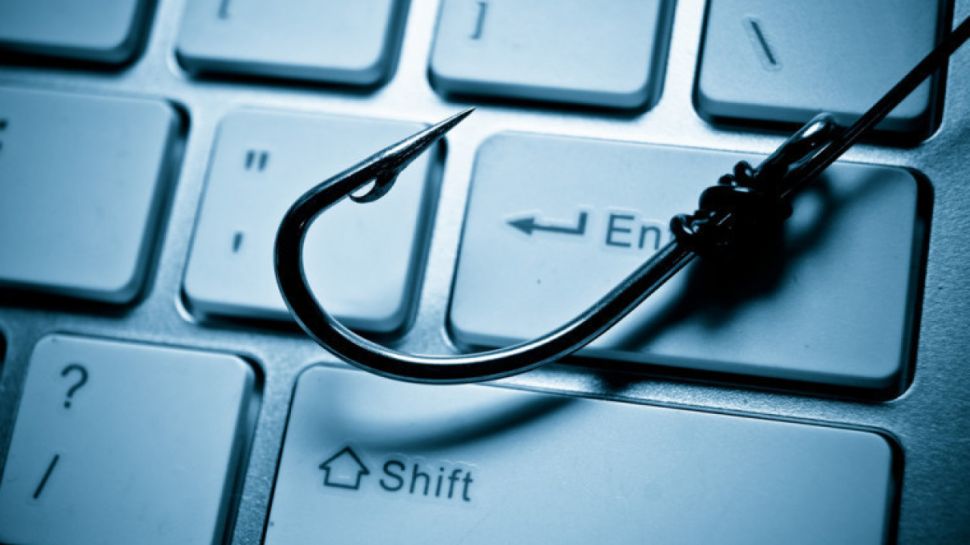ID fraud exposed: shedding light on the definition and risks of identity theft
ID fraud is just one possible result of identity theft

Identity theft is a growing problem in today's digital age, and without identity theft protection, the consequences can be devastating. It can ruin your credit score, destroy your reputation, and even lead to being falsely accused of a crime you didn't commit. Unfortunately, this happened to you when a police officer showed up at your door with a warrant for your arrest for money laundering.
You were shocked and confused when you heard the news. You knew you had done nothing wrong, but how could you prove it? The officer explained that your digital fingerprints were all over the case, linking you to the illegal activities that had taken place. Clearly, someone had stolen your identity, and now you were paying the price.
Identity theft is a complex and sophisticated crime that can take many forms. Hackers can steal your personal information from unsecured websites, phishing emails, and even social media profiles. Once they have your information, they can open credit card accounts, take out loans, and commit fraudulent activities in your name.
The consequences of identity theft can be severe and long-lasting. In addition to being falsely accused of crimes, victims can experience financial ruin, damage to their credit scores, and emotional distress. It can take years to recover from the damage done by identity theft, and many victims never fully regain their financial footing.
The good news is that there are steps you can take to protect yourself from identity theft. These include monitoring your credit report regularly, using strong passwords and two-factor authentication, and being cautious about sharing personal information online. By taking these precautions, you can reduce your risk of becoming a victim of identity theft and protect yourself from the devastating consequences that come with it.
What Is ID Fraud?
Identity fraud, also known as ID fraud, occurs when a thief uses a stolen identity to commit fraudulent activities. This type of fraud is typically associated with financial crimes, where the perpetrator takes advantage of the victim's financial status to obtain loans and credit lines in their name.
Although impersonation is occasionally used in ID fraud, it has become rare due to the prevalence of mass identity theft on the internet. With the wide variety of credit application methods available online, it is largely unnecessary.
Are you a pro? Subscribe to our newsletter
Sign up to the TechRadar Pro newsletter to get all the top news, opinion, features and guidance your business needs to succeed!
Money laundering is often linked with ID fraud, as the thief might use the victim's funds to purchase goods, have them delivered to an address under their control, and then sell them for profit.
How They Steal Your Identity
Before ID fraud can be committed, identity theft must first occur. But how do these criminals get their hands on your data?

Phishing
Identity theft is a significant concern, and one of the most common ways it happens is through phishing and spoofing websites. In this scam, you receive an email, SMS, or instant message containing a link. The link takes you to a fake website that looks legitimate, where you're prompted to enter your login details or personal information. Scammers use this information to steal your identity and commit fraud.
Another way this scam can happen is through unsolicited phone calls. A fraudster might call and pretend to be from your bank, asking you to confirm your login details or personal information. They might even record the call and use it to gain access to your account through automated login services. It's essential to be aware of these scams and avoid clicking on unknown links or giving out personal information over the phone.
Bag-snatching
Your bag, purse, or wallet can be a goldmine for identity thieves. Your credit cards, debit cards, phone, and Social Security card can all provide them with the information they need. To stay safe, only carry the cards you need and wear your bag securely across your body. Keep your cards, wallets, and purses out of sight and reach. Only remove your cards when you're paying for something.
Shoulder surfing
When you are paying for your purchases, it is important to be aware of the people around you. If you need to enter a PIN at the checkout or an ATM, someone nearby could see your code and use it if your card is stolen. To prevent this, always cover your PIN as you enter it to keep it a secret.
Physical document theft and "dumpster diving"
It would be best to shred old bank statements and letters from your bank or card company. Any personally identifiable paperwork should also be shredded. The reason? All it takes is someone to go through your bins and find valid old documents to steal your identity.
Known as "dumpster diving," this is a tried and tested method to succeed at identity theft. The best solution is to shred your documents, ID cards, and old passports.
The alternative is simply breaking into your home and stealing important documents. Keep bank records, passports, and other identifying documents locked away to combat this.
- These are the best paper shredders on the market

Oversharing on social media
Have you ever shared too much on Facebook? Unfortunately, the answer is probably "yes." From photos of days out to where you live, when you're at work, on holiday… it's oversharing. And with the wrong privacy settings set, anyone can learn everything there is to know about you.
Worse, by observing your activity on Facebook, a daily pattern emerges. Criminals could use this to determine when to visit your home and steal those vital documents that you still haven't locked away.
While Facebook oversharing is the main culprit, any social network that encourages you to share every aspect of your life should be used less.
- Also check out the best social media management tools
Saving your credit card number online
If you shop online with stores like Amazon, there is a good chance that you will save your credit card details in your account. This saves time at the checkout, helping to reduce the time spent shopping. It also keeps you from finding your wallet, getting the card out, and then inputting the 16-digit number, your name, and the CVV2 code on the back.
However, saving your credit card online can be risky. All it takes is for the online store to be hacked. In addition, if your data isn't stored in an encrypted form, your credit card details are up for grabs. With those, credit card fraud or complete ID fraud can take place.
Take Identity Theft Seriously
Your life is literally out of your hands if you don't take steps to ensure the security of your accounts. But you don't need to feel afraid of this. Treat digital security as you would the safety of your home or car. You lock doors and windows, fit an immobilizer, and maybe an alarm.
Universal vigilance is required to avoid the tricks and traps set by scammers. Thankfully, you can take many of the same steps. For example, lock your accounts with two-factor authentication to prevent unauthorized access. Set up SMS or email alerts to inform you when spending gets out of control. Sign up for credit monitoring services to catch any new accounts that might have been created in your name.
The critical takeaway is to take identity theft seriously, or else ID fraud will undoubtedly occur.
More from TechRadar Pro
- Protect your privacy online with one of the best VPN services
- Prevent others from accessing your network with the best secure routers
- Also check out our roundup of the best malware removal software
- We've also highlighted the best identity theft protection
Christian Cawley has extensive experience as a writer and editor in consumer electronics, IT and entertainment media. He has contributed to TechRadar since 2017 and has been published in Computer Weekly, Linux Format, ComputerActive, and other publications. Formerly the editor responsible for Linux, Security, Programming, and DIY at MakeUseOf.com, Christian previously worked as a desktop and software support specialist in the public and private sectors.
